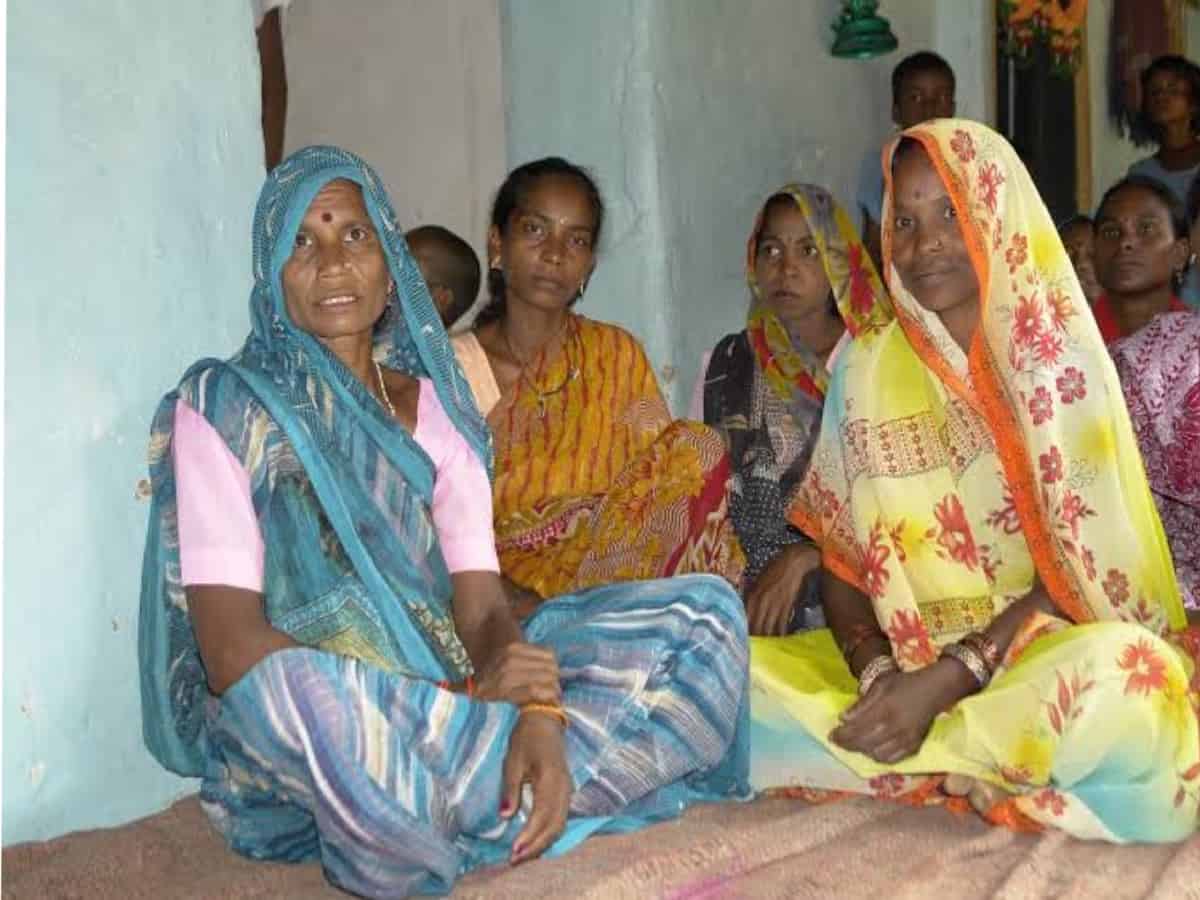
As the nation celebrates the 75th anniversary of Indian Independence, there is yet another significant milestone this year, which has gone relatively unnoticed. This is the 70th anniversary of Denotified Nomadic Tribes, brought in 1952 by Pandit Jawaharlal Nehru.
This helped to liberate an estimated 13 million people, belonging to 127 communities at the time of Independence, from the stigma and the stranglehold of the draconian Criminal Tribes Act, 1871.
Now, an estimated 60 million people suffer from the legacy of the past. Owing to their historical associations, these communities continue to face alienation and stereotyping by the police and the media, causing them economic hardships. Many of them are still categorized as ex-Criminal Tribes.
All India Congress Committee (AICC) observer for SCs, STs, OBCs and minority departments K Raju recently organized the Swabhiman Mukti Divas at the AICC headquarters in New Delhi, to mark the occasion.
Colonial Legacy
Initially, in 1871, the British Government brought the Criminal Tribes Act, which covered North India. In 1876, it was extended to Bengal Presidency; in 1911, it was extended to Madras Presidency; and in 1924, it covered other parts of British India.
This single Act criminalized entire communities as habitual criminals. This brought stigma to communities, by designating them as addicted to systematic commission of non-bailable offences. Adults in these communities were required to report every week to their local police and there were restrictions on their movements.
Communities notified under the Criminal Tribes Act were labelled as Criminal Tribes for their so-called criminal tendencies. Anyone born in these communities across the country were presumed to be born criminal, irrespective of their criminal precedents. As a result, this gave police sweeping powers to arrest them, control them and monitor their movements.
Members of such communities had no recourse to repeal such notices under the judicial system, once they were notified.
Their movements were monitored, from then on, through a system of compulsory registration and passes. It specified where the pass-holders could travel and reside. The district magistrates were required to maintain records of all such people.
For generations, several communities were stigmatized. In 1952, Pandit Jawaharlal Nehru brought the curtains down on such a shameful practice.
Nehruvian Reforms
In fact, the scale and magnitude of reforms ushered in by Jawaharlal Nehru at the dawn of Independence is unparalleled and just stupendous.
Murder and mayhem in the wake of Partition and bringing back sanity and rehabilitation in those trying times; integration of nearly 565 Princely States; kickstarting development on an hitherto uncharted course, where there was no industry, agriculture, irrigation or infrastructure worth the name — these were no mean achievements of Nehru.
By starting the Sahitya Akademi, along with Lalit Kala Akademi and Sangeet Natak Akademi, Nehru helped the cultural renaissance of the people.
Denotifying Nomadic Tribes was a measure to bring out people from stigma and social ostracization. This was part of a long chain of reforms set off by Nehru.
Continuing Stigma
Despite the best efforts, there are signs of continuing social stigma. For instance, many of the tribes were settled in villages under police guard. This was done to ensure that no registered member of the tribe was absent without notice.
In 1936, Pandit Jawaharlal Nehru said, “The monstrous provisions of the Criminal Tribes Act constitute a negation of civil liberty. No tribe be classed as criminal as such and the whole principle out of consonance with all civilised principles.”
Even ahead of Indian Independence, as early as in January, 1947, a committee comprising of Morarji Desai, BG Kher and Gulzari Lal Nanda, was set up to look into the matter. On recommendations of the panel, the Criminal Tribes Act was repealed in the erstwhile Bombay State, in August, 1949, in a bid to decriminalize these communities.
In 1950, a Central Government Committee was set up and, on its recommendation, the Criminal Tribes Act was repealed in 1952.
Urgent Steps Needed
An attempt was made by the Congress-led UPA Government to help the cause by setting up National Commission for Denotified Nomadic and Semi-Nomadic Tribes in 2005, under the Chairmanship of Balkrishna Renke. Currently, there is a pressing need for Balkrishna Renke report recommendations to be implemented.
The government needs to enumerate the denotified nomadic tribes. An opportunity presented itself during the Census in 2021 but however, went amiss.
At least state-wise lists of such tribes could be prepared for implementation of the Scheme for Economic Empowerment of Denotified Nomadic Tribes. Different state governments can issue ration cards and BPL certificates to help these communities.
The Union Social Justice and Empowerment Ministry could earmark annual outlays and also implement Sub-Plans. There are other steps like targeted interventions for providing basic civic amenities for communities living in clusters and colonies.
Similarly, there is a need for launching schemes for the educational empowerment of women belonging to Denotified Nomadic Tribes.
(Views expressed are personal.)

